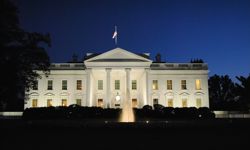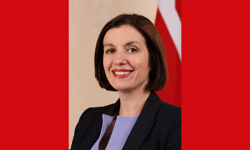The 2nd December Declaration highlights the need to strengthen and support free, independent and professional journalism as a means of countering disinformation and combatting hate crimes.
Identifying women journalists as frequently the most vulnerable and exposed, the Declaration denounces as a danger to quality journalism - and ultimately democracy itself - those who use threats and hate to silence the women who are making their voices heard.
“Professional journalism is our most effective means of countering disinformation and combatting hate crimes. It is the best weapon we have against all types of prejudices,” reads the Declaration. “Journalists are on the front line when it comes to protecting freedoms in society - and women journalists are often the most vulnerable and exposed. They are targeted, not only because they report on the abuse of power, but because they are women.”
At time of press, over 50 media organisations had pledged their advance support for the text.
The Declaration coincides with an event in Stockholm on 2nd December, 2016 that will pay tribute to all women journalists who defy such dangers to pursue their mission of providing citizens “with the information needed to make enlightened decisions about their lives, their communities, their societies and their governments.”
Prominent women journalists, including Barkha Dutt (India), Laura Castellanos (Mexico), Galina Timochenko (Russia/Latvia), Jessikka Aro (Finland), Anita Sarkeesian (Canada/USA), Miranda Patrucic (Bosnia), Jamela Alindogan (Philippines), Fatuma Noor (Somalia) and Baria Alamuddin (Lebanon) will attend a seminar hosted by the Swedish Ministry for Foreign Affairs, the Fojo Media Institute/Linnæus University, the Swedish Institute and the Swedish National Commission for UNESCO.
The seminar will draw upon the stories of the invited journalists as a point of departure on how to find strategies to counter hate speech, threats and disinformation.
The 2nd December Declaration in full:
“On 2nd December 1766, the Swedish King enacted a ‘Gracious Ordinance Relating to Freedom of Writing and of the Press’, the world’s first legislation guaranteeing the right to a free press.
Today, journalists around the world depend on this right to uncover corruption, provide transparency and demand accountability. However, verbal threats and hate speech increasingly put this function at risk.
On the 250th anniversary of this important legislation, we call for greater worldwide efforts to protect all media professionals, wherever they may be challenged.
We, the undersigned, believe in the need to strengthen and support free, independent and professional journalism, however and wherever necessary. Professional journalism is our most effective means of countering disinformation and combatting hate crimes. It is the best weapon we have against all types of prejudices. Journalists are on the front line when it comes to protecting freedoms in society - and women journalists are often the most vulnerable and exposed. They are targeted, not only because they report on the abuse of power, but because they are women.
We therefore draw particular attention to the specific dangers facing women journalists and underline the urgent need to do more to counter the growing hostility felt by women across the globe towards their right to freedom of expression.
We denounce those who use threats and hate to silence the women who are making their voices heard. This constitutes not only a threat to quality journalism, but also to equality and ultimately to democracy itself.
We wish to use this historic day to pay tribute to all women journalists who are defying death threats, sexual violence, physical and psychological abuse, hate speech or online intimidation to pursue their professional calling. Women who continue, despite such pressures, to provide citizens with the information they need to make informed decisions about their lives, their communities, and their governments.”












